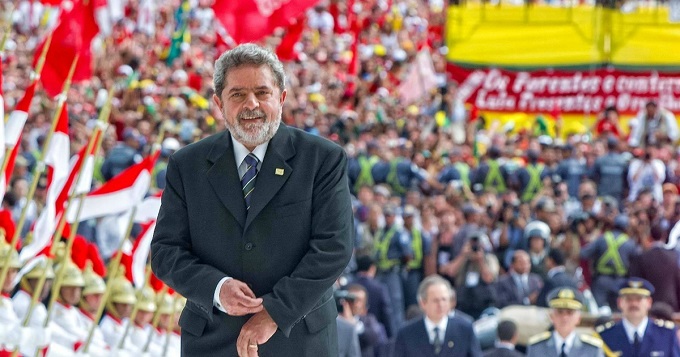What determines a country’s foreign policy? Some analysts point to a leader’s personal traits. An activist foreign policy, they say, is largely the result of a President who happens to be interested in international issues, while the opposite is true for those leaders who care more about domestic challenges. Realists, such as Steve Walt, counter that while leadership style and personal interest may play a role in specific circumstances, all leaders are forced to operate within large trends they are unlikely to change or able to escape from. From his perspective, what shapes a country’s foreign policy is the distribution of power. Debating China’s leadership transition in 2012, for example, he argued that
“…as a good realist, I think that the basic state of Sino-American relations will be driven more by balances of power and configurations of interest than by the personalities of individual leaders.”
In Brazil, this debate matters as President Dilma Rousseff’s rather low-key and restrained foreign policy since 2011 is often contrasted with Lula’s activist and high-profile international strategy between 2003 and 2010. Foreign policy observers often ascribe this to the fact that Mrs. Rousseff cares little about international issues, showing a much greater interest in domestic topics.
Yet while Mrs. Rousseff may indeed have a personal preference for domestic politics rather than international affairs, it must also be pointed out that she operates in a very different context than her predecessor.
Lula was President in a decade that seemed to be tailormade for Brazil: high economic growth figures at home, even when Europe and the United States were in recession, allowed the Brazilian leader to gain unprecedented visibility. The ill-conceived and costly military intervention in Iraq severely affected US legitimacy and Jim O’Neill’s invention of the BRIC label added to a sense that the world was quickly moving towards a post-Western multipolar system. Admittedly, President Lula masterfully recognized and took advantage of this historic window of opportunity. Brazil today is widely accepted as an emerging power that is set to shape the global conversation in the 21st century.
Under President Rousseff, this global scenario has changed. Brazil has grown less than 2% over the past years, and Brazil’s economic performance can no longer be compared to that of the past decade. While Europe still struggles, the US economy is slowly beginning to recover, and it may very well grow faster than Brazil over the next years. A more confident United States, no longer tied down in Iraq and Afghanistan is unlikely to provide rising powers with the space the BRICS so skillfully used over the past years. In addition to lower growth, Brazil’s forays into the world’s top league – marked by Lula’s trip to Iran and its stint as a non-permanent UN Security Council member – were far from smooth. Some of Brazil’s decisions under Lula severely strained relations with the United States, and bilateral ties reached a low point at the end of the Lula administration, forcing today’s foreign policy makers to adopt a more passive tone. Some say that under these adverse circumstances, even President Lula would opt for a somewhat more cautious and less visible international stance.
A third Lula presidency may put that assertion to the test. Such a scenario would surely increase Brazil’s international visibility to some degree – after all, he is a globally recognized figure. Itamaraty would most likely regain the importance it had prior to 2010, and Lula’s Foreign Minister would be allowed to adopt a more visible stance than those over the past three years. But even he would have to adjust to a new scenario that is far more complex for Brazil than the past decade. Brazil is no longer the new kid on the block. Given its economic weight, it faces some resistance in the region for the first time, and Brazil’s UNASUR initiative has only been a partial success. Given Lula’s active support for President Maduro during the last elections in Venezuela, his return to power may reduce Brazil’s legitimacy as an honest broker during the ongoing negotiations in Caracas. Mercosur’s struggle and the rise of the Alliance of the Pacific pose new challenges to Brazil and it is of course unclear how Lula would seek to respond to them.
Realist theory is certainly right not to overestimate the role of leaders’ personalities – after all, they are subject to the environment in which they operate. And yet, despite less benign global circumstances, Brazil’s foreign policy during a third Lula term would hardly resemble Dilma’s passive approach — rather, in terms of visibility, it would probably be somewhere between the activism of Lula’s first eight years, and Dilma’s passivity.
Read also:
What would India’s Foreign Policy under Modi look like?
How many diplomats does an emerging power need?
Turkey’s complex case for UN Security Council reform
Photo credit: Marcos Alves/Agência O Globo









